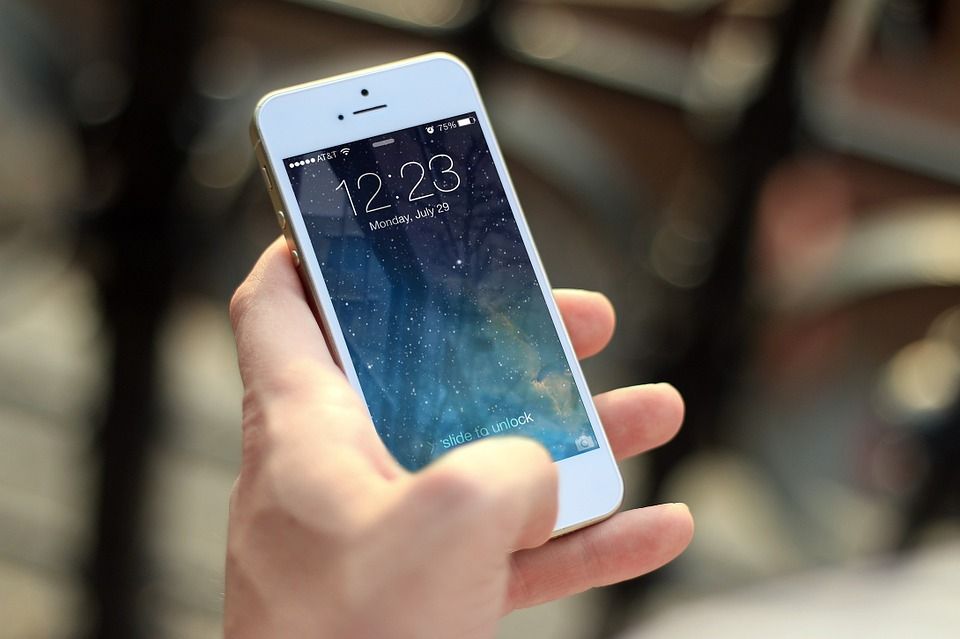Alugha Updates | March 2022 - what's new at alugha
Here at alugha, we love technology and leveraging it in creative ways for our users to provide unique features and a stellar experience.
Not being up to date is, so to speak, the quintessence of “FOMO”. As a consequence, you always look at your smartphone.

Read this article in: Deutsch, English
Estimated reading time:3minutesWe all feel it - the urge of always being available. It just feels good to have the smartphone within reach and with that the possibility to be online at any time. However, that need may take dangerous or even unhealthy forms. Peter Vorderer, professor of media and communication science at the University of Mannheim, calls this phenomenon “PO/PC”. We all try to fight our “FOMO” through “permanently online/permanently connected”. Indeed, something like that actually exists: The “Fear of missing out” is a term which is currently researched highly scientifically. We have the fear of missing something out while we’re not using our smartphones, not answering WhatsApp messages or not giving out likes on Instagram. The fact that we feel this anxiety while having a coffee with friends seems almost paradoxical. But it seems that local “live” experiences become more and more less important, when all hell was let loose on the WhatsApp timeline.
Not being up to date is, so to speak, the quintessence of “FOMO”. As a consequence, you always look at your smartphone - you almost feel unimportant if there is no message flashing on your screen. We’re apparently willing to accept the fact that “FOMO” can also cause people to feel excluded or unappreciated in real face-to-face situations. Scientific studies prove that the mere presence of a smartphone influences the quality of real face-to-face conversations in a negative way. According to the study released in 2013 by Przybylski & Weinstein, the counterpart feels particularly distanced from the interlocutor, when the topic of the conversation is deep or meaningful and a smartphone is present. In addition, empathy decreases. It has long been clear that smartphones can be really dangerous, especially in partnerships. Checking your partner’s phone is, thanks to social networks, not uncommon and puts your trust to the test. Smartphone usage has become an issue often discussed in relationships.
According to Vorderer, online services like instagram can heavily jeopardize our life satisfaction, because constantly scrolling through your timeline can result in desensitization of sensations: A picture of a friend at the beach here, a selfie of a friend randomly meeting a celebrity there, then people with perfect bodies biting into a burger with relish - and then there’s us, unflattering and in pajamas. Exactly this kind of looking through pictures makes our own life seem highly unspectacular and boring, which can quickly lead to an extremely negative effect on our own life satisfaction. We come to the decision that our daily routine is simply just average, not worth talking about.
After sending a risky text message, WhatsApp’s blue check marks can drive you crazy. Because the evidence of “he/she/it read it” leads to the expectation of a response. If you don’t get one, you’ll remain disappointed. Professional terms for this also already exist: “Ghosting” describes ceasing all communication and contact with the former partner without any warning. You can’t get in touch with that person anymore, as if the earth had swallowed he or she up. This can be upsetting, especially if it happens after a long time. Getting “ghosted” is also one of the phenomena that only got so significant through the recent changes in lifestyle due to the media.
We don’t want to badmouth everything, we simply want to point out how much smartphone usage might have changed our society in the last years. Therefore: Our karma tip for today - give your counterpart a compliment and put your smartphone away, even if it’s just for one hour! :-)
Here at alugha, we love technology and leveraging it in creative ways for our users to provide unique features and a stellar experience.
Here at alugha, we love technology and leveraging it in creative ways for our users to provide unique features and a stellar experience.
“Management is the art of orchestrating best possible collaboration in an organization.” Where this “art” (for me) combines both, the willingness and the ability to act. Both have to be reflected in the two main areas of management: in the function “management” (the “how” and “what”) and the instit
Alugha is a video translation tool that streamlines the production and collaboration process for high-quality content tailored to international audiences. Learn more at: https://appsumo.8odi.net/get-the-starter-pack You’re ready to share your videos with the whole wide world. But like a certain co
IZO™ Cloud Command provides the single-pane-of-glass for all the underlying IT resources (On-premise systems, Private Cloud, Cloud Storage, Disaster Recovery, Amazon Web Services, Microsoft Azure, Google Cloud Platform, etc). About Tata Communications: Welcome to Tata Communications, a digital ecos
A revolutionary new service in the video industry! Our report is about the unique alugha platform. Alugha gives you the tools to make your videos multilingual and provide them in the language of your viewers. Learn more about the great features of the platform here: https://alugha.com/?mtm_campaign